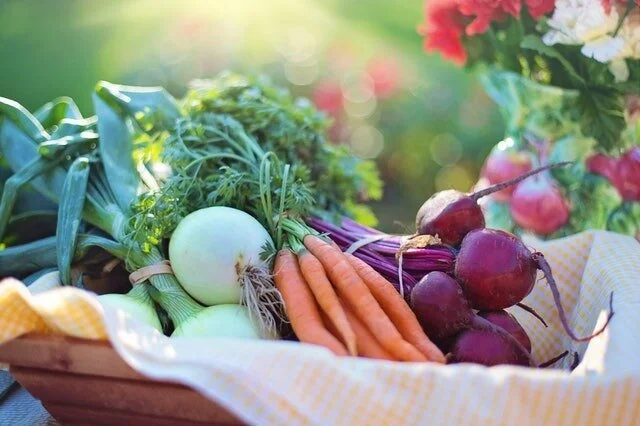Tips for Starting Your Organic Vegetable Garden
Have you ever wanted to start an organic home garden, but the thought seemed far too complicated? Of course, there is a lot involved when you’re starting an organic garden, but with the right tips and tactics, it’s completely realistic. Move aside farmers market! You can have organic garden fresh veggies from your own soil.
We did a ton of research for you, and found several helpful articles on organic gardening to find the best tips out there. Here is a roadmap to get you started!
1. Start Collecting Compost
First things first! In order to have a bountiful organic garden at home, you need to enrich it with compost. So before you start planting, you should start developing your compost. Once you decide where you’ll put your organic garden bed (which we get into further in step #2), you’ll need to spread a layer of compost into the soil a few inches deep. Tips for making a great compost pile could be an entire blog post in and of itself, so for now, here’s a great article we found that covers the topic in more detail.
2. Choose Your Bed & Mind the Soil
Your next step is to decide where your garden bed will be. Phil at the Smiling Gardener swears by full sun. He says that “full sun” means 4-8 hours of bright sunlight. Also, the size of your garden bed does not have to be very large. Often times, homeowners new to gardening take on too much at once and end up quitting altogether.
You’d be surprised at how much you can produce from even the smallest garden bed. If you are just starting out with organic gardening, we suggest a garden bed of approximately 50 square feet.
Just as importantly as the sunshine, you need to consider the soil. OrganicLife recommends that your soil be dry, but does not clump in your fist when you pick up a handful. Also, it can take years to build up healthy dirt! Liquid fertilizers will kickstart your soil so you can produce healthy and happy veggies and herbs all season long. Here’s a list of top organic liquid fertilizers to help you narrow down your options.
3. Get to Planting!
You can start with seeds, but for those just beginning to grow their own produce, we recommend simplifying and buying small starter plants. Seeds can be much more challenging for a beginner learning how to grow their first organic garden. In San Diego, there are so many great nurseries to find starter plants. We love City Farmers Nursery and Mission Hills Nursery, check them out, you’ll thank us later!
4. Consider Companion Planting
Did you know that there are certain plants that thrive when they grow near others? Companion planting helps your garden to stay healthy, deters bugs and pests, increases pollination and can enhance the yields of your veggie garden!
There are several types of flowers, veggies and herbs that should be planted together, and some that shouldn’t. We found this comprehensive article that dives deeper into companion planting! It’s definitely worth bookmarking for reference when you’re ready to choose your plants!
5. Give it That TLC
After you’ve planted your seeds or starter veggies, it’s time to watch & tend to your garden. The most important part of growing a healthy organic vegetable garden is simply taking the time to care for it and keep an eye out for any pests or plant diseases.
Spend a few minutes everyday overseeing the garden, and carve out longer periods on the weekend for any needed maintenance. In regards to watering your organic vegetable garden, we recommend watering newly seeded areas on a daily basis. If you opt for starter plants versus seeds, you can water them every 2-3 days.
With some patience and TLC, you’ll be on your way to an abundant vegetable garden in no time!





